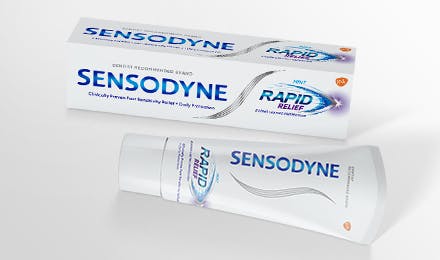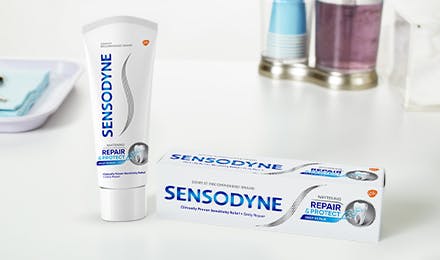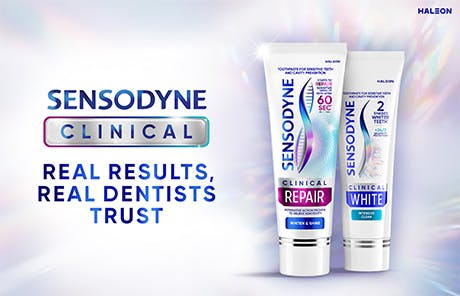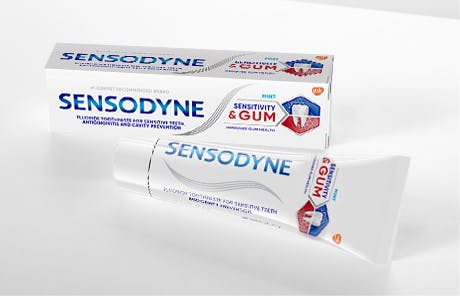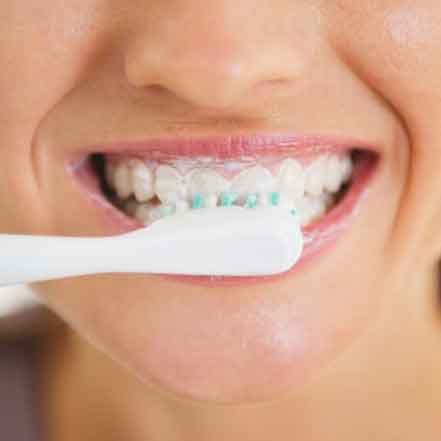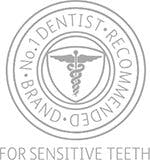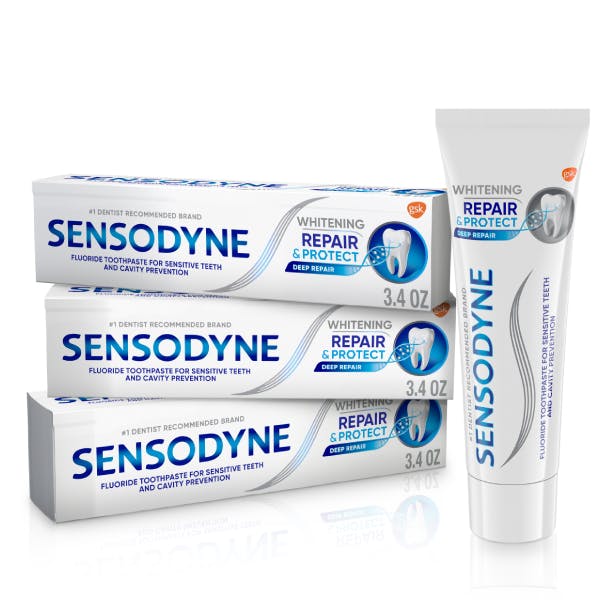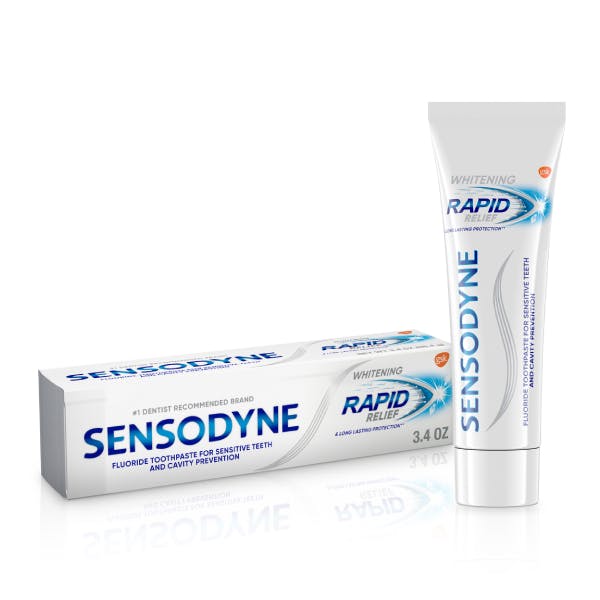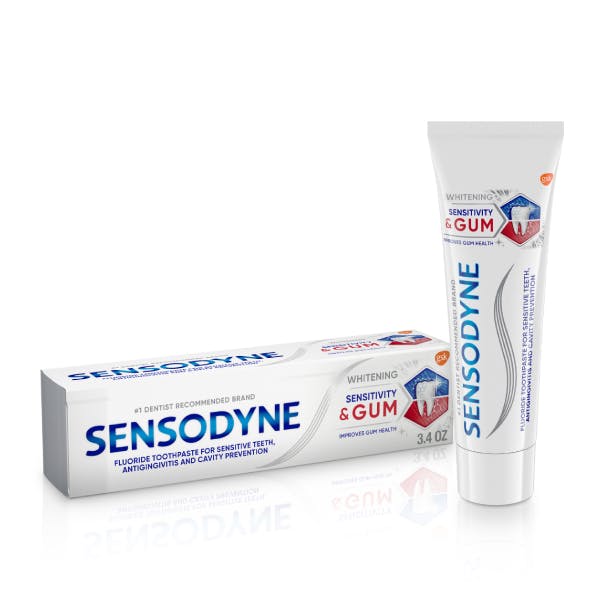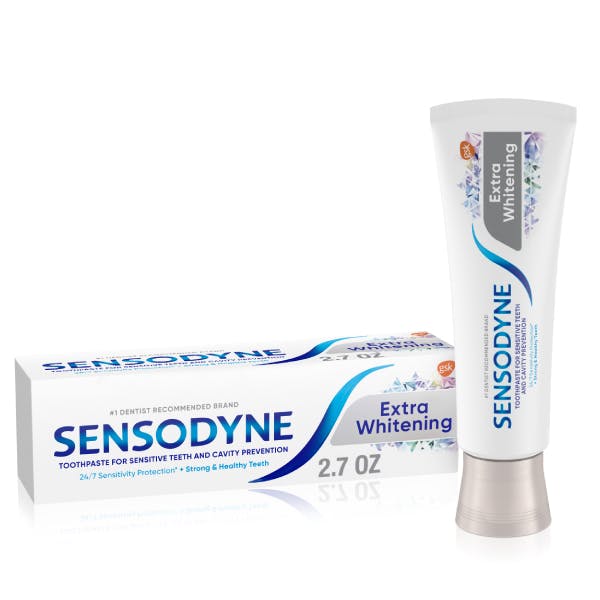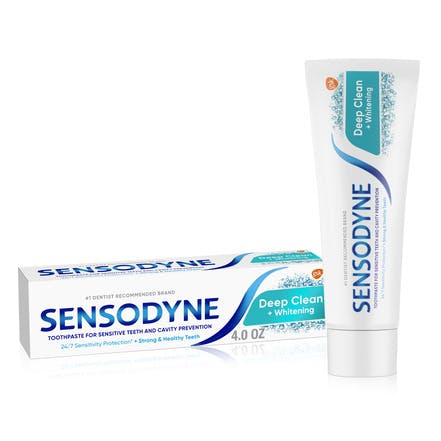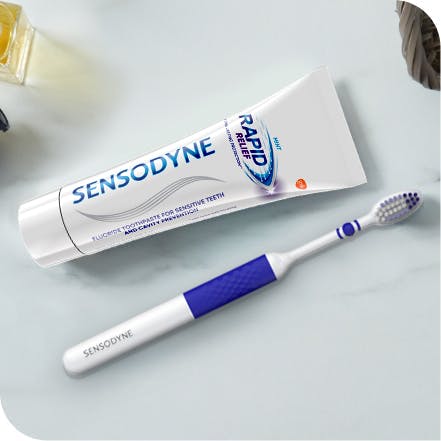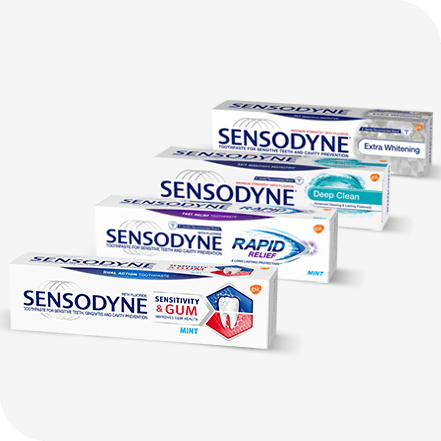How to Deal if Your Teeth Are Sensitive to Cold

A bite of ice cream. A sip of an ice-cold soda. If you have sensitive teeth, these everyday cold foods and drinks can unexpectedly trigger a jolt of pain fast.
That’s because, over time, your protective layer of tooth enamel can wear down, exposing the soft, inner part of your tooth called dentin.1 When dentin is exposed due to loss of enamel, certain triggers—including cold foods, drinks, or even a burst of air—can aggravate the nerves, causing a short, sharp pain known as tooth sensitivity.1
5 Ways to Help Manage Tooth Sensitivity to Cold
In healthy teeth, the hard, outer layer of enamel protects the dentin.1 There are a number of reasons why your enamel may have weakened, or your dentin may be exposed, though common reasons include receding gums and tooth decay.1 While these issues should be addressed by you and your dentist, there are a few things you can do to address the fact that your teeth are sensitive to cold and reduce your discomfort:

1. Drink Through a Straw if Cold Drinks Hurt Your Teeth
Sipping on cold beverages can be painful. Instead, drink them through a straw so the liquid bypasses your teeth and will be less likely to trigger a twinge of sensitivity.2 You may also want to choose drinks that are less acidic so they don’t further aggravate your sensitive teeth, or drinking water after drinking something carbonated or acidic.2

2. Eat Differently if the Cold Hurts Your Teeth
If ice cream hurts your teeth, you don’t have to give up your favorite frozen desserts—just try eating them differently. Rather than biting into ice cream or sorbet, lick it instead. This way, you’ll avoid direct contact with your teeth and get to savor it longer. Granted, if you’re stuck on sugary foods, you may want to try eating them less often to avoid irritating your already-sensitive teeth.1

3. Breathe Through Your Nose
If cold weather hurts your teeth, there are several actions you can take that may reduce your pain. One of the best things you can do to help mitigate teeth pain is to give your teeth extra attention during the cold months.5 Using a soft-bristled toothbrush with toothpaste suitable for sensitive teeth and flossing daily is especially crucial for protecting your teeth.5 Additionally, refraining from sugary, acidic, and abrasive foods is another step you can take to help avoid tooth pain.5 Be sure to look for any dental and mouth issues, like chapped lips, canker sores and jaw pain.5
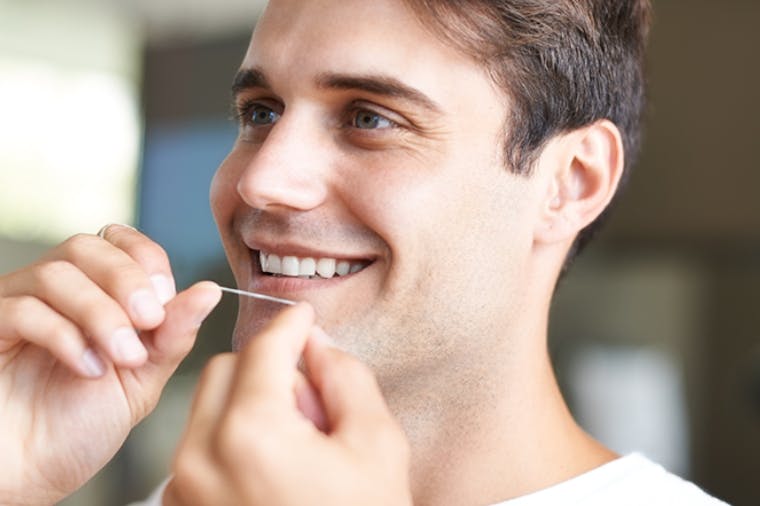
4. Practice Good Oral Care to Help Teeth That are Sensitive to Cold
Reduce your risk of sensitivity to cold by brushing twice a day with a soft-bristled or electric toothbrush and by flossing every day. Use small, circular movements when brushing, rather than brushing side to side, and change your toothbrush every two to three months.1 Take care not to brush too hard. A good oral care routine can help protect your teeth and prevent conditions like enamel wear or receding gums, which can lead to sensitive teeth. Find a dentist near you to start a proper oral care routine and treatment plan.
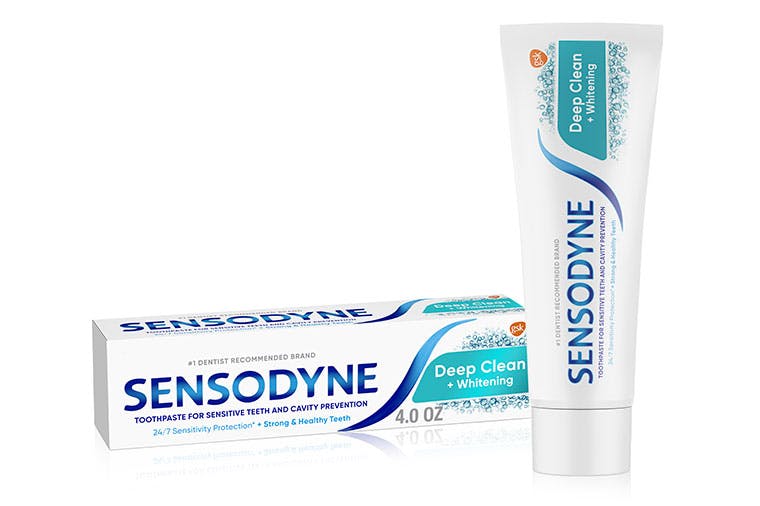
5. Brush with Sensodyne Every Day
Take care to avoid abrasive toothpastes that can exacerbate the problem for teeth that are sensitive to the cold.2 Instead, look for a toothpaste that’s specially designed for sensitive teeth.1 Sensodyne toothpastes contain active ingredients that help relieve sensitivity* and protect your teeth so you can fully enjoy your favorite cold foods, drinks and activities. Find which Sensodyne toothpaste is right for you.
*With twice-daily brushing
Source Citations:
- Sensitive Teeth. Oral Health Foundation. https://www.dentalhealth.org/sensitive-teeth. Accessed 8/15/23.
- Dentin Hypersensitivity: Etiology, Diagnosis and Treatment; A Literature Review. National Library of Medicine. https://www.ncbi.nlm.nih.gov/pmc/articles/PMC3927677/. Accessed 8/15/23.
- What is known about the influence of dentine hypersensitivity on oral health-related quality of life? National Library of Medicine. https://www.ncbi.nlm.nih.gov/pmc/articles/PMC3585945/. Accessed 8/15/23.
- Dental pain induced by an ambient thermal differential: pathophysiological hypothesis. National Library of Medicine. https://www.ncbi.nlm.nih.gov/pmc/articles/PMC5736355/. Accessed 8/15/23.
- How to Take Care of Your Teeth as the Weather Gets Colder. University of Illinois Chicago, College of Dentistry. https://dentistry.uic.edu/news-stories/how-to-take-care-of-your-teeth-as-the-weather-gets-colder/


